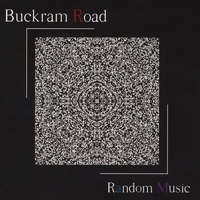Some good work here (although I certainly don't agree with all of it) and well worth reading.
The establishment of an executive level "center" for government efficiency is a good idea if it is not another level of bureaucracy but instead is the type of dynamic collaborative interaction we've been preaching (since 1993!).
The immediate problem with this report is that it is, again a static document created by a limited number of individuals over a finite period of time. This was probably unavoidable given their mandate and the current state of affairs.
A good effort was made to "reach out" to as many folks as possible and the concept of "collaboration" is repeated often in the report. It also rightly acknowledges that previous efforts have failed because of a lack of follow-up.
Now, if they take this report as a first step in creating a collaborative, flexible, dynamic and inclusive state-wide project and further if they do not assume that all of their conclusions are correct and not subject to further scrutiny, then we are on to something.
These "types" of reports must also not be divorced from complimentary information (from all sources; the meta-data and analysis we always talk about) and reports.
A potential danger in this report is that some will take it (or parts of it) as the final word on the subject, when in fact it is just the beginning of what is possible.
If utilized properly this report can create an important framework for real, positive and sustainable progress in New York.
"Sustaining Local Efficiency
“The need for changes in local government, regional structure and service provision is linked to forces that continue to change. Local government’s appropriate scale and organization is influenced by changes in our economy, technology, demographics and other factors that help determine public service need, effective size and cost efficiency. . . New York needs a flexible framework and approach to facilitate and encourage important adjustments. We are not facing a one time “house cleaning” but an ongoing maintenance and improvement program to keep an effective local and regional governance system.”
Mike Hattery, “Rural Vision Project,” Cornell (2006)
While the Commission ends its deliberations with the issuance of this report, it is our strong belief that the task of local government reform must be pursued at the state level through a focused and sustained effort. State government should aggressively support and promote local efficiencies, identifying successful practices and removing barriers. Accordingly, we propose the creation of a Center for Local Government Efficiency, which could be established without new costs, in the same manner the Commission has operated, utilizing the resources of the many state agencies with missions related to local government efficiency. The reasons for this are as follows:
Local government reform, including a review of state programs and statutes which affect local efficiency, is an essential element of economic competitiveness and property tax relief.
Most of the local initiatives we have supported need continuing assistance (and we are still receiving additional initiatives). The process has proved to be an excellent way to build relationships with local leaders and bring attention to needed reforms. It also generates productive ideas for mandate relief and other advisable changes in state statutes and programs.
Restructuring and reform of local government operations is a complex, long-term undertaking. Previous local government commission reports have generally gone unimplemented, despite the quality of their work and recommendations. A sustained Executive commitment is needed to facilitate local efforts and to ensure that state agencies are attuned to the impact of their programs on local governments.
Following this final report, the Commission’s mission should be sustained through an Executive-level Center for Local Government Efficiency that will provide a gateway to state government for citizens and local officials pursuing this goal. It will extend the local initiatives process and work of the Interagent>nt>ncy Task Force currently coordinated under the Commission. It will facilitate coordination of state agencies and resources supporting shared services and consolidation. Technical assistance for local governments would be provided with information on best practices, how-to manuals, agency referrals, and a website directing local officials and citizens to resources. This Center would also lead continuing research and policy development"
Subscribe to:
Post Comments (Atom)











































No comments:
Post a Comment